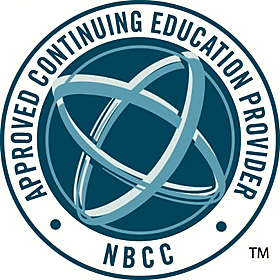Carol Becker, PhD, facilitates this couples therapy training with monthly guest presenters. Learn about doing couples therapy in an accessible format offering deep learning and connection.
Days: One Wednesday evening per month from November 2023 to May 2024; the first class is the second Wednesday of the month then all classes will meet the first Wednesday
Time: 6:45pm to 9:35pm Eastern Time convert to your time Zone here
Location: Live on Zoom. Participants must attend in real time.
Overview of Master Series in Couples Therapy Training:
- Didactic presentation about an aspect of couples therapy
- Role play demonstration of skills taught
- Small group connection among participants
- Questions and discussion of lessons learned
2023
- November 8, 2023, Corky Becker : From Diatribe to Dialogue
- December 6, 2023, Rebecca Harvey: Summoning Ourselves to Intimacy: Affirmative LGBTQ+ Couples Therapy
2024
- January 3, 2024, Mona Barbera: It’s All in the System: How Internal Family Systems Helps Couples
- February 7, 2024, Roger Lake : Working with Couples When Addiction Is Present
- March 6, 2024, Katherine Waddell: How To Get Unstuck: Creating Autonomous Goals and Motivation in Couples Therapy
- April 3, 2024 Michelle Joy: The Developmental Enneagram for Couples
- May 1, 2024, Sarah K. Samman: Relational Empowerment: Establishing a Foundation to Address Gender and Power
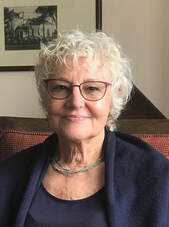
Carol Becker, PhD
Carol Becker PhD, (AKA, Corky) From 1989-2015 she was a founding member of the Public Conversations Project, whose mission was to apply family therapy ideas and approaches to work with divisive public issues like abortion. Applying ideas from PCP Corky focused her practice and teaching on working with high conflict couples and families. Currently, she teaches and supervises family therapy to Child Psychology Interns at Cambridge Health Alliance. She teaches in the Intensive Program in Family Systems Therapy at Therapy Training Boston and directs the Masters Series in Couple Therapy Training. Corky was a founding member of The Kosovar Family Professional Education Collaborative, 2000- 2006, designed to establish family therapy as a central part of the post war rebuilding of the mental health system to local mental health professionals after the 1999 bombing of Kosova. For 25 years she consulted to the Interpersonal Skills Exercise on dialogic skills for the Project on Negotiation at Harvard Law School. She co-developed a family therapy training program on the ground in China, followed by monthly zoom meetings. This online training included Child Psychiatrists from all over China from 2021-2023.
More information:
Statement of Need:
Doing couples therapy well is a complex task that requires ongoing learning of new skills. This couples therapy training expands participants frame to work with a wide range of couples who are struggling with relational satisfaction. Problems addressed include those caused by sociocultural context including marginalization of ethnicity, sexuality, gender and other critical identities. Couples therapy is energizing, challenging, and rewarding work. Whether you are a veteran of couples therapy or just starting, this course will enhance your skills, thinking and practice.
“It has been such a pleasure to be a part of the Master Series couples therapy training. The presentations have been outstanding and invigorating. And even on Zoom, the role plays have been helpful in demonstrating theory while also conveying the emotional power of the work. I have also appreciated getting to know the members of the group. Thank you for an excellent year.”
Ellen Safier, LCSW, Adjunct Faculty at Center for Psychoanalytic Studies, Houston, TX
Outline for Each Meeting of the Course ~ 6:45 pm to 9:35 pm, Boston time
Break Out Discussion- 6:45 to 7 pm. Participants meet in small groups for 15 minutes to discuss a question/topic/clinical dilemma related to the evening’s presentation
Speaker Introduction-7 to 7:05 pm
Guest presenter discusses critical ideas and practices that they use in working with couples – 7:05 pm to 7:45 pm (40 min)
Break: 7:45 to 8 pm
Live demonstration of couples therapy showing how to practice ideas presented – 8 pm to 8:40 pm (40 min)
Debrief role players’ experience of the interview, identify key couples therapy interventions that were demonstrated. -8:40 to 8:55 pm (15 min)
Participants small group discussion- 8:55 to 9:10 pm (15 min)
Large group unpacking of learning and questions for the speaker. – 9:10 pm to 9:35 pm (25 min)
Learning Objectives for the Couples Therapy Course
- Describe two interviewing skills learned in each evening of the couples therapy training.
- Compare interviewing skills demonstrated by senior couples therapists and discern when to use what approaches.
- Detail four techniques for preventing or working with conflict.
- Explain three different approaches for increasing connection and empathy in couples.
- Identify two similarities among the approaches to couples therapy presented in the course.
- Name two differences among the approaches to couples therapy presented in the course.
- List two concepts related to working with each of these dilemmas: problematic communication including high conflict, working effectively with queer couples, using IFS in couple therapy, working with addiction in couples therapy, using the Developmental Model with couples, the Enneagram as a tool for couples therapy, and addressing relational empowerment related to gender and power in couples therapy
Description of Each Class in the Couples Therapy Training
Target Audience
This couples therapy training is designed for helping professionals interested in the principles and practices of couples therapy, including, but not limited to, social workers, mental health counselors, and marriage & family therapists. The program serves the needs of beginning and intermediate couples therapists with little to a moderate amount of formal couples therapy training who are or would like to work with couples and families. We also support couples therapists and other practitioners who take the course to deepen their knowledge, enhancing capacities for supervision, teaching, training, and administrative roles. Individual clinicians who work with relational issues will also benefit from the course.
Cost
- Registration: The cost for individual registration $775. Early registration available until for individuals is $750.
- September 14, 2023 is the early registration deadline. Payment plans are available.
- CEUs: additional cost of $40 for CEUs for the professions who are eligible and people who would like to access those. CEU information below.
- Black Therapists Rock, National Assn. of Black Counselors, NEAFAST Members and anyone else may contact us for an equity rate of $700
- Please note: you must register for the couples course as a whole. Attendance at individual sessions of the course is not allowed to maintain the integrity of the learning group. Contact us for more information.
Testimonials from Past Participants
“It has been such a pleasure to be a part of the Master Series couples therapy training. The presentations have been outstanding and invigorating. And even on Zoom, the role plays have been helpful in demonstrating theory while also conveying the emotional power of the work. I have also appreciated getting to know the members of the group. Thank you for an excellent year.”
Ellen Safier, LCSW, Adjunct Faculty at Center for Psychoanalytic Studies, Houston, TX
“I want to echo others’ in extending my gratitude and appreciation for such a wonderful couples therapy training this year! I have to say it was one of the best Zoom classroom experiences I’ve had, and I credit your skillful design—the blending of large and small group experiences as well as an outstanding lineup of guest teachers and courageous role-players.”
Anonymous Participant
“Thank you for creating this invaluable learning space for the intimacy of couples therapy training. And to my colleagues and fellow participants—it was lovely to learn with and from you.”
Joanna M. Poole, MA, LMHC, private practice
“Thank you for another great year of this unique and wonderful couples therapy training. Each class this year has been outstanding. Have also really enjoyed sticking with the same small group for each class. A small change, but it made a big difference.”
Heidi Krueger, LICSW, retired
“It was fun! Great 2021-22 series! Can’t wait to see the topics and the speakers for next couples therapy training series is bringing to us.”
Chuck Weinstein, LMHC, CPRP, CPS, private practice
Additional Information
Participants MUST attend 100% of the program to earn the 18 CEUs approved for eligible professions.
- Therapy Training Boston is approved by NBCC as an Approved Continuing Education Provider, ACEP No. 6707 for Mental Health Counselors. Programs that do not qualify for NBCC credit are clearly identified. Therapy Training Boston is solely responsible for all aspects of the programs.
- This program has been approved for 18 Social Work Continuing Education hours for relicensure, in accordance with 258 CMR. NASW-MA Chapter CE Approving Program, Authorization Number #D 91296-3.
- This application is certified for 18 Licensed Marriage & Family Therapist Continuing Education hours for re-licensure by the New England Association for Family and Systemic Therapy (NEAFAST) on behalf of the Massachusetts Board of Registration of Allied Mental Health & Human Services Professions. authorization number #PC- 042037
- Read detailed information about CEUs.
No refunds are available for cancellations by participants regardless of the reason or time frame. If participants cancel 30 days or more prior to the event beginning, they may apply the fee to a future program. Workshops may be cancelled by Therapy Training Boston if minimum enrollment requirements are not met or in the case of other unexpected circumstances. If this occurs, a full refund will be provided.
This course will provide important information for clinicians who are at an introductory or intermediate level of knowledge about working with couples. Advanced practitioners are welcome to attend to deepen their knowledge of the subject for practice, supervision, teaching, and administrative roles.
Target Audience: This offering is relevant to all helping professionals including but not limited to social workers, mental health counselors, psychologists, marriage & family therapists.
Commercial support and conflicts of interest: There is no commercial support for this program.

 Rebecca Harvey, PhD, is a Professor of Marriage and Family Therapy (MFT) at Southern Connecticut State University (SCSU).
Rebecca Harvey, PhD, is a Professor of Marriage and Family Therapy (MFT) at Southern Connecticut State University (SCSU). 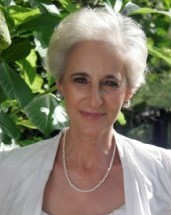 Mona Barbera
Mona Barbera Roger Lake, MFT
Roger Lake, MFT 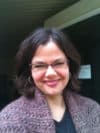 Katherine Waddell is co-Founder and Co-Director of the Couples Center of the Pioneer Valley. She is on Teaching Faculty and a Teaching Assistant at the Couples Institute with master couples therapists Dr. Ellyn Bader and Dr. Peter Pearson. She has presented on and taught Couples Therapy and the Developmental Model of Couples Therapy in numerous contexts, live and online, since 2010. Currently she co-teaches monthly with Dr. Bader in her International Level 1 Course, and regularly provides quarterly Special Training Calls, and monthly Q and A calls to the international Developmental Model training community. Katherine has co-created and taught Advanced Skills in Couples Therapy to American and Romanian
Katherine Waddell is co-Founder and Co-Director of the Couples Center of the Pioneer Valley. She is on Teaching Faculty and a Teaching Assistant at the Couples Institute with master couples therapists Dr. Ellyn Bader and Dr. Peter Pearson. She has presented on and taught Couples Therapy and the Developmental Model of Couples Therapy in numerous contexts, live and online, since 2010. Currently she co-teaches monthly with Dr. Bader in her International Level 1 Course, and regularly provides quarterly Special Training Calls, and monthly Q and A calls to the international Developmental Model training community. Katherine has co-created and taught Advanced Skills in Couples Therapy to American and Romanian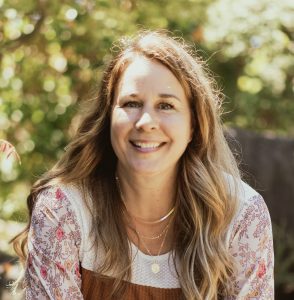 Michelle Joy is a licensed marriage and family therapist, a certified Enneagram teacher and founder of her approach, “The Developmental Enneagram for Couples.” For almost 2 decades, she has been specializing in helping couples transform their relationships by “marrying” The Enneagram with developmental methods – a most potent combination. She is a leading expert on the topic and has been hired by world-renowned relationship experts as well as by Facebook and Google to learn how to use the Enneagram to transform relationships. She has been a chosen speaker at International Enneagram conferences, podcasts, and sought after for her knowledge and expertise on the topic.
Michelle Joy is a licensed marriage and family therapist, a certified Enneagram teacher and founder of her approach, “The Developmental Enneagram for Couples.” For almost 2 decades, she has been specializing in helping couples transform their relationships by “marrying” The Enneagram with developmental methods – a most potent combination. She is a leading expert on the topic and has been hired by world-renowned relationship experts as well as by Facebook and Google to learn how to use the Enneagram to transform relationships. She has been a chosen speaker at International Enneagram conferences, podcasts, and sought after for her knowledge and expertise on the topic.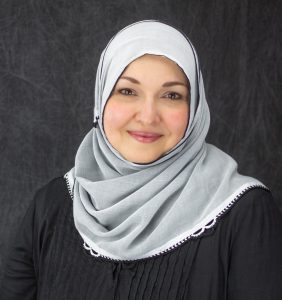 Sarah K. Samman, PhD, works in a group practice with couples and families in San Diego, California. Sarah earned her masters degree in Counseling Psychology, Marriage and Family Therapy, from Lewis & Clark College and a post-master’s certificate in Medical Family Therapy as well as a doctoral degree in Marital and Family Therapy from Loma Linda University. She taught as adjunct and core faculty for nearly a decade in the field of couple and family therapy. Sarah is deeply committed to and has presented on issues of interpersonal and social justice and specializes in addressing experiences with interculturalism, internationalism, spirituality, and gender and power on couple and family relationships. She utilizes a post-modern, bio-psycho-socio-spiritual approach with an intersectional Feminist Family Therapy grounding. She is a member of the Board of Directors of the American Family Therapy Academy (AFTA), is licensed as a Marriage and Family Therapist, and is an AAMFT Approved Supervisor.
Sarah K. Samman, PhD, works in a group practice with couples and families in San Diego, California. Sarah earned her masters degree in Counseling Psychology, Marriage and Family Therapy, from Lewis & Clark College and a post-master’s certificate in Medical Family Therapy as well as a doctoral degree in Marital and Family Therapy from Loma Linda University. She taught as adjunct and core faculty for nearly a decade in the field of couple and family therapy. Sarah is deeply committed to and has presented on issues of interpersonal and social justice and specializes in addressing experiences with interculturalism, internationalism, spirituality, and gender and power on couple and family relationships. She utilizes a post-modern, bio-psycho-socio-spiritual approach with an intersectional Feminist Family Therapy grounding. She is a member of the Board of Directors of the American Family Therapy Academy (AFTA), is licensed as a Marriage and Family Therapist, and is an AAMFT Approved Supervisor. 